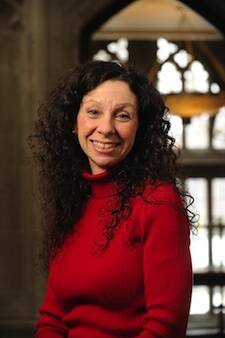I am no expert on autism.
What I know about it, I have learned from watching friends and colleagues raise their autistic children, an experience that has moved me deeply and filled me with admiration. I have also learned a great deal from reading. Fortunately, there is a robust literature devoted to this challenging disorder, ranging from poems to blogs to memoirs, as well as a steady stream of scientific studies. It is a paradox that we have never known more about autism, and yet we are as far as ever from understanding its causes or discovering a cure. In the absence of this, while medical science continues its work, what can the rest of us do?
One response to this challenge is to take up a subject that is daunting and difficult and make something beautiful of it. This is precisely what Michael Bergmann, an award-winning filmmaker, and his wife Meredith Bergmann, a production designer, have done in their new feature film, “Influence.” In addition to being artists (Meredith is also a sculptor and poet), the Bergmanns are particularly suited to take on this material as they are the parents of Daniel, their 19-year-old son, who has autism.
“Influence” is not a documentary; instead, it is a fictional drama inspired by the couples’ journey through autism and loosely based on their own lives. The film tells the story of Francis and his first date with Laura, a young autistic woman he was smitten with while visiting an art gallery with his parents. It is a classic coming of age story, yet this date is like none we’ve seen before, as both Francis and Laura need the assistance of their parents to communicate. They accomplish this through spelling—a painstaking process wherein each parent guides the child’s hand, helping him/her to point to the letters on a handheld alphabet board. The parents serve as intermediaries, articulating the words the child spells out. What follows is an absorbing tale of ardent young love, conflicting parental desires to allow their children to become independent and to protect them, and the power of language to free human beings (autistic or not) from the prison of self.
The Bergmanns’ film is beautifully made. Set entirely in their Manhattan apartment, “Influence” has the intensity of a stage play. Undistracted by scene changes, the audience’s attention is fixed on the characters as the drama unfolds in the living room of their lives. The small, meticulously appointed apartment, with its many books and original artwork, attests to the parents’ devotion to literature, learning and the arts. In fact, the only pursuit to which they are more devoted is raising their son, tirelessly attending to him, stimulating him and providing outlets for his lively mind. In contrast to the static and deliberately claustrophobic setting are the passion and pent-up energy of the characters. This is especially true of the two young people at the center of the drama, played with such compelling vulnerability by James Kacey and Rachel Zeiger-Haag that it is difficult to believe the actors do not have autism.
The film offers a powerful fictional story—but it also offers an intimate glimpse into the lives of the artists who created it. We witness first-hand the consuming nature of parenting a child with autism, the frustration of their child, but we also get a rare glimpse into the joy of their family life despite the challenges of the condition.
“Influence” is charming, humorous and inspiring, but it does not offer easy answers. In counterpoint to the near-miraculous breakthroughs in communication, doubt casts its shadow. To what extent are these conversations illusions? Might the ideas expressed by Francis and Laura actually originate in the parents, who deftly guide their children’s restless hands from letter to letter, thought to thought? This leads to the most troubling question of all—to what extent is the autistic person in possession of an autonomous self?
Michael and Meredith Bergmann’s film bravely explores this rough terrain, initiating the audience into the world of autism—one governed by uncertainty, isolation and fear. In the words of Michael Bergmann, “Influence” is “a postcard from a place we didn’t know existed.” Francis and Laura are, finally, a mystery—to their parents, to each other and to themselves. And aren’t we all? The film slowly leads us to the recognition that Francis and Laura are our own children, infinitely precious and deeply loved. Francis and Laura are us.








